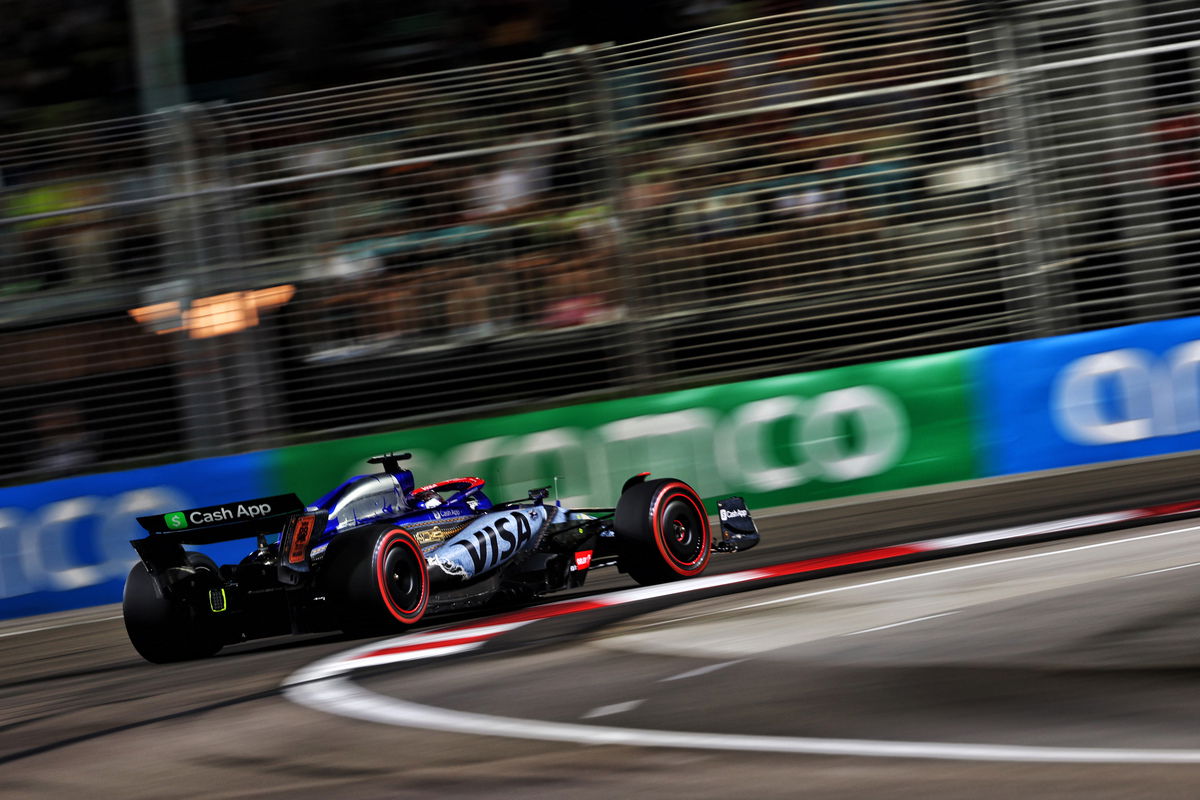

From 2025, drivers will no longer be able to score a bonus point by setting fastest lap.
The decision was voted through at a meeting of the FIA World Motor Sport Council in Paris.
Introduced for the 2019 season, drivers who finished in the top 10 have been awarded an additional world championship point if they recorded the fastest lap of the race.
Should a driver set that marker but finish outside of the top 10, the point went unawarded.
At the Singapore Grand Prix, Daniel Ricciardo recorded the fastest lap for RB as he finished 18th.
His effort effectively stole the point away from Lando Norris in a move that raised questions regarding collusion between the two Red Bull-owned teams.
By denying Norris the point, it had a material impact on the world championship as it meant title leader Max Verstappen could now shadow his McLaren rival to the flag in every race for the remainder of the season and still take the championship.
The Ricciardo situation is but one example of drivers and teams gaming the system that has often seen drivers pit late in the race with the intent of scoring the point (or, in some instances, denying it of a rival).
The FIA also announced that young drivers will be given more seat time from 2025.
Currently, teams are obliged to run a driver with fewer than three grand prix starts to their name in each of their cars during the season.
That will be increased to two appearances in each car during the season.
For rookies such as Jack Doohan, that obligation will be met by the Australian in his first two events of the season, meaning Alpine would only have to (twice) field a young driver in place of Pierre Gasly.
In addition to those changes for 2025, there were more fundamental discussions surrounding the regulations for the following season.
That will see the regulations reorganised with the governing body acknowledging “extensive enhancements” to the technical regulations following pushback from teams regarding car performance from the 2026 technical regulations.
“The 2026 Technical Regulations (Section C), originally approved in June 2024, were subject to extensive enhancements to the aerodynamic regulations, which have been the subject of a strong collaboration between the FIA, FOM and the Formula 1 teams,” the FIA noted.
“This will see a higher performance from the cars, while maintaining management of the wake characteristics to promote close and exciting racing.”
There is also an effort to update the Sporting Regulations to “simplify and modernise” their structure, with similar efforts going into the Financial Regulations.
Nine days of pre-season testing for the 2026 season were also approved.





















Discussion about this post